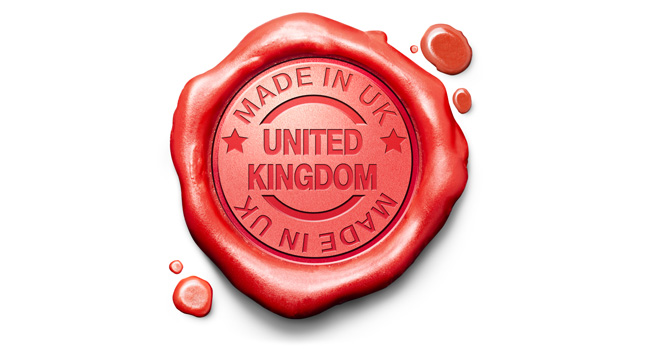

Tony Fisher, director of quality at John Guest, reveals what he believes 'Made in Britain' really means
The statement 'Made in Britain' holds a certain gravitas. These three simple words provide many with reassurance on quality, durability and reliability. British products, whatever the sector, have long been recognised as a reliable option for many and, in recent years, we have seen a trend in customers prioritising quality rather than simply going for the cheapest alternative. However, this statement can be misused and misleading, especially if you dig deeper into the claim of a product being made here in Britain – all is not what it seems.
The British Standards Institute (BSI) Kitemark is a recognised symbol of quality and safety, offering true value to consumers and businesses. Originally only used in the UK, the BSI Kitemark is now recognised throughout the world as a mark of quality. One of the country's oldest and trusted certification marks, the Kitemark came into being after the 1950s and 1960s saw numerous sectors flooded with consumer goods, many of dubious quality.
The BSI gradually began to introduce standards and accreditation to UK products that met its high criteria and now it is used as an aid to those purchasing or specifying, with the Kitemark providing unrivalled reassurance globally.
With this in mind, it is crucial that those seeking UK-made products look for the Kitemark. Not only will it tell them that the product is manufactured in Britain, but it will also guide them on quality and standards within each sector. Without this symbol, a product can claim to be UK made but this doesn't necessarily mean the entirety of the product is made in the UK.
A product may be marked as made in this country, but that could actually translate as assembled here at the final stage of manufacturing. Many companies manufacture abroad to produce products on mass and, in some cases, use cheaper materials and methods that may not live up to the standards of the BSI.
As discussed, the label of 'Made in Britain' reflects trust in the quality of British manufacturing. Falsely labelled products may lead to customers being let down by poor product reliability, problems with materials and issues with installations. Imported products also make it more difficult for the manufacturer to be accountable for any faults.
Certain standards have to be maintained in order to be allowed to retain and use the Kitemark on products. At John Guest, this means inspections on site twice a year, which assess the manufacturing process, materials and assembly, and test our products to tough standards. Abroad there are a variety of standards, but quality control can differ. Cheaper products will often not be thoroughly assessed and manufacturers can become less traceable for suppliers and customers, and the repercussions can be felt right across the supply chain.
Why buy British?
A British manufacturer has to ensure BSI standards are maintained, met and exceeded. Therefore, with the weight of British quality and testing behind a product, a customer can be assured that there is usually a British head office, the security of supply, traceable products and transparency. British manufacturers are also accountable for any problems a product may have and any product marked by the BSI can be taken through clear channels if issues do arise.
Increasing demands of new technologies and faster and easier installation of more reliable components has undoubtedly influenced the way many specify and buy products. Within the majority of sectors, needs and requirements are forever evolving and engineering excellence behind a product can often be the greatest consideration ahead of cost.
Buying British therefore isn't just about being patriotic or supporting the country's economy. It's also about ensuring people buy the best quality, understand the process behind a product and make judgement on a product based on standards rather than simply on cost.
If you'd like to keep up-to-date with the latest developments in the heating and plumbing industry, why not subscribe to our weekly newsletters? Just click the button below and you can ensure all the latest industry news and new product information lands in your inbox every week.